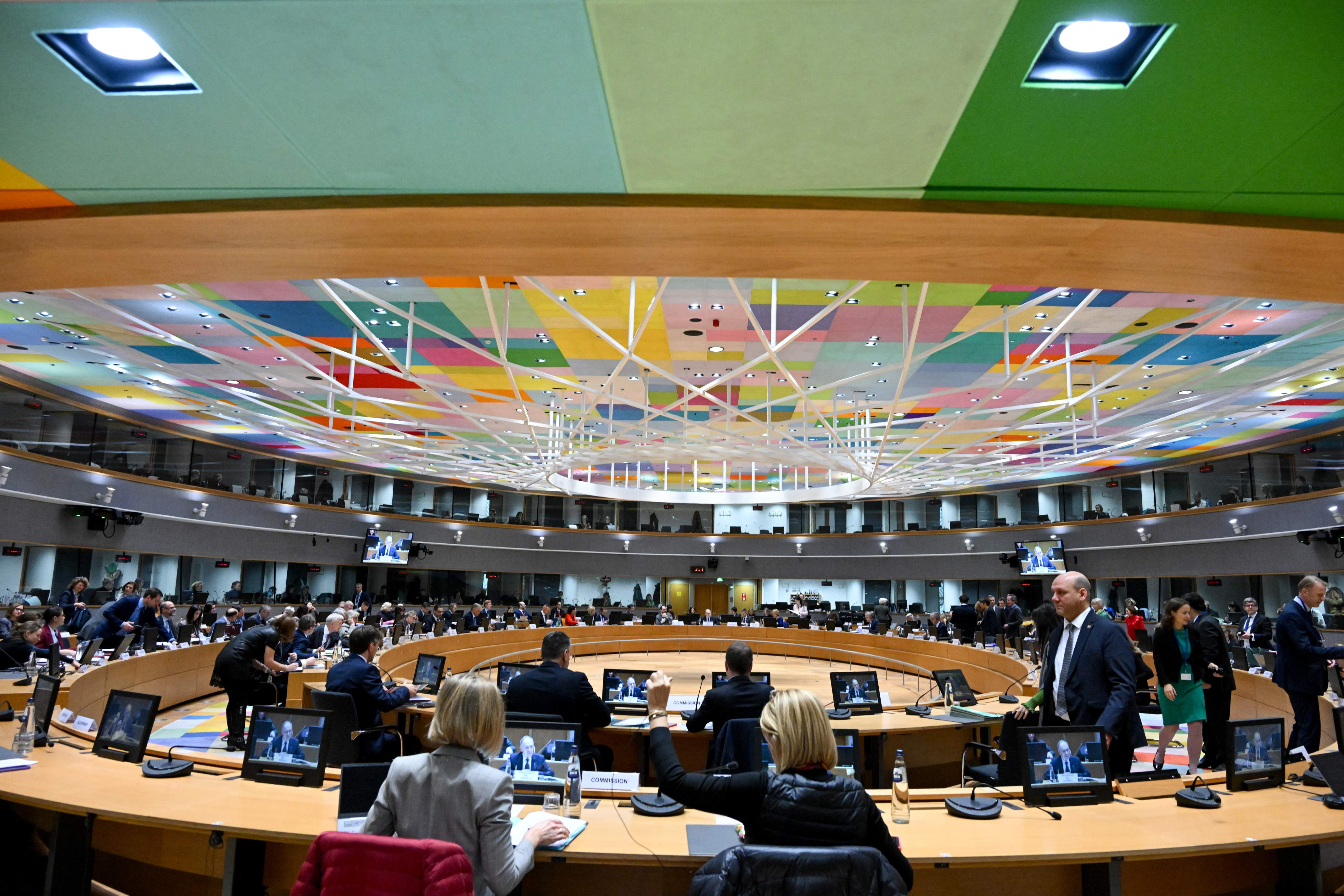This Tuesday, a new meeting of the EU's General Affairs Council was held in Brussels. A meeting in which it was envisaged, as part of the agenda, to address the on-going question of the official European status of the Catalan language as a "point of information" for members, to determine the state of the issue. Given this, there was no expectation that today's meeting would yield a major debate or a vote on the possible entry of Catalan, Basque and Galician into the European Union. But the reality was even more bitter: the European affairs ministers of the member states addressed the point about the officiality of Catalan for less than 10 minutes, as the ACN agency reported. Community and diplomatic sources revealed that "there was no discussion", only an exposition by the Spanish executive which did not give rise to any reply.
During the meeting, the Spanish government presented the memorandum that it had already sent to the EU states. The document, delivered in the last few days to the governments of the 27, recalled that the EU must "respect the national identity of the member states" and that, in the case of Spain, this includes "linguistic diversity". "Catalan, Basque and Galician are co-official languages with deep historical roots, a large number of speakers and a place in our Constitution", argues the memo. However, after this presentation, in which the legal and political arguments for the officiality of the three languages were also explained, none of the representatives of the other countries took the floor. It was not necessary for the representatives of other countries to intervene after the Spanish government's presentation, but it would have been possible if they had requested it.
The PP, responsible
However, with respect to the situation of the Catalan language in Europe, this Tuesday has been particularly marked by the accusation of the Spanish undersecretary for the EU, Fernando Sampedro, who on his arrival at the meeting said that the fact that the Spanish People's Party refuses to support this initiative means that countries governed by allies of the PP do not support it due to party influence. The Spanish representative pointed out that there is "political resistance" from some European partners, such as Sweden, Finland, Latvia and Lithuania - four countries that are governed, in fact, by parties integrated into the European People's Party. In this regard, he pointed out that the PP's support for the proposal would "facilitate" its approval because PP governments would also support it. The official request needs the unanimity of the 27 to move forward.
Indeed, this Tuesday the Finland's European affairs minister, Anders Adlercreutz, once again asserted his country's reluctance in this matter. Before the meeting he explained that Finland's "main concern" about the officialization of Catalan, Basque and Galician in the EU is the "repercussions" it could have on its own minority languages.

